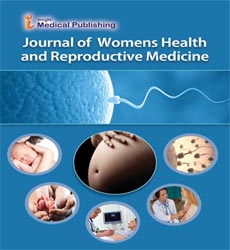The shadow challenges to improve the state essential newborn care practices in healthcare providers: Evidence from a multicentre cross-sectional study in Ethiopia
International Congress on Midwifery and Maternal health
April 11, 2022 | Webinar
Ermias Sisay Chanie
Debre Tabor University, Ethiopia
ScientificTracks Abstracts: J Womens Health Reprod Med
Abstract
Background: Many of neonatal mortality can be reduced by providing essential newborn care; however, it is overlooked in most healthcare providers in Ethiopia. Hence, this study aims to examine immediate essential newborn care practices and associated factors among healthcare providers in Ethiopia. Methods: Institution-based cross-sectional study was employed among 214 healthcare providers from November 11 to December 19, 2020, at a selected South Gondar health facility. Data were entered into Epi-data 4.2 and then exported to STATA14.0 for analysis. Both bivariable and multivariable logistic regression with a 95% confidence interval was computed. The variable that had a p-value less than 0.25 in bivariable logistic regression was entered into the multivariable logistic regression. In multivariable logistic regression variable having a p-value < 0.05 were considered a statistically significant association with the poor practice of essential newborn care practice. Results: The overall essential newborn care practice among healthcare providers was found to be 74.8 % (95% CI: 68.4, 80.2). Diploma educational status (AOR=7.8, 95% CI:2.80–21.9), presence of workload (AOR=9.7, 95% CI: 2.76–23.9, unavailability drugs and vaccines (AOR=9.8, 95% CI: 6.95–17.7), and hadn’t training (AOR=3.9, 95% CI: 1.73–8.92) were found be a predictor for poor essential newborn care practices. Conclusion: Essential newborn care practice among healthcare providers at south Gondar health institution was low. Being diploma educational status, presence of workload, unavailability of drug and vaccine, and hadn't trained were found to be independent predictors for poor practice. Hence, periodic evaluation and strategies are need for those predictor variables to address the gaps.
Biography
Ermias Sisay Chanie has his expertise in evaluation and passion in improving the health and wellbeing. He holds B.S. and M.S. degrees in pediatric and child health nursing in Wollo University and University of Gondar University. Now, he is working in research and education in Debre Tabor University. He has more than 37 publications. Of these, 10 of the were as principal investigators.
Google Scholar citation report
Citations : 77
Abstracted/Indexed in
- Google Scholar
Open Access Journals
- Aquaculture & Veterinary Science
- Chemistry & Chemical Sciences
- Clinical Sciences
- Engineering
- General Science
- Genetics & Molecular Biology
- Health Care & Nursing
- Immunology & Microbiology
- Materials Science
- Mathematics & Physics
- Medical Sciences
- Neurology & Psychiatry
- Oncology & Cancer Science
- Pharmaceutical Sciences

